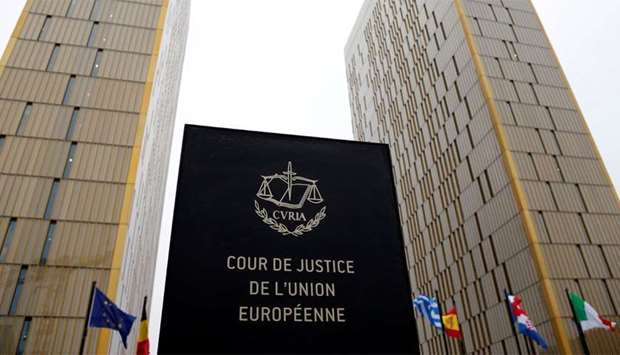The European Union referred Poland to its top court on Monday for an alleged breach of the independence of its supreme court, the latest showdown between Brussels and populist member state governments.
Brussels took action amid fears Poland and other EU countries with populist and authoritarian tendencies are undermining the union's founding democratic and rule of law values.
The European Commission, the bloc's executive arm, said it will take Poland's right-wing government to the European Court of Justice for lowering the age at which Supreme Court judges must retire from 70 to 65.
This would hasten the departure of judges appointed under previous governments, allowing the appointment of figures seen as loyal by Warsaw's current leadership.
The Commission said it ‘decided to refer Poland to the Court of Justice of the EU due to the violations of the principle of judicial independence created by the new Polish law on the Supreme Court.’
The Luxembourg-based court could impose fines if it finds Poland in breach of EU law.
In Warsaw, Polish government spokesperson Joanna Kopcinska said: ‘Poland is ready to defend its legal arguments before the court.’
The Polish government insists the reforms are needed to tackle corruption and overhaul a judicial system still haunted by the communist era.
Krzysztof Raczka, a supreme court justice, welcomed the decision in Brussels.
‘I am profoundly convinced and hope that it is the moment marking the start of a return to the state of things worthy of a democratic country in the early 21st century,’ the judge told journalists. ‘I would like Poland to remain so.’
- 'Risk of serious damage' -
Warning that Warsaw is accelerating retirements, the Commission said it had asked the ECJ to give a final judgement ‘as soon as possible.’
The Commission said Warsaw's implementation of the new laws creates ‘a risk of serious and irreparable damage to judicial independence in Poland.’
Consequently, the move also undermines ‘the EU legal order’, including member states' mutual recognition of court decisions.
Already in July, the ECJ authorised EU countries to refuse arrest warrants from Poland if they doubt defendants will get a fair trial there.
The Commission also asked the ECJ, pending a final ruling, to take ‘interim measures’ such as restoring the Supreme Court to its situation before April 3.
The Commission has previously urged the Polish authorities to address its concerns about the April 3 law or risk being taken to the top EU court.
‘The response of the Polish authorities on both occasions has failed to alleviate the Commission's legal concerns,’ it said.
The commission said the Polish supreme court law ‘undermines the principle of judicial independence, including the removability of judges.’
- 'A purge' -
The new retirement age requires more than a third of current Supreme Court judges to step down, including chief justice Malgorzata Gersdorf.
Calling the law a ‘purge,’ Gersdorf has refused to step down, citing a constitutional guarantee that she serve a six-year term until 2020.
The law more broadly violates Poland's obligations under the EU treaty, which it signed onto when it joined the bloc in 2004, the commission said.
The EU first sounded the alarm over Polish judicial reforms shortly after the right-wing Law and Justice Party, PiS, won elections in 2015.
Brussels has since engaged in more than two years of talks, but Warsaw has largely ignored its warnings that the changes would affect democratic checks and balances.
In December, the Commission triggered unprecedented proceedings against Poland under Article 7 of the EU treaty, citing ‘systemic threats’ to the rule of law.
This could eventually see Warsaw's EU voting rights suspended, but Warsaw's neighbour Hungary, led by right-wing populist Viktor Orban, has vowed to veto any such penalty.
The European Parliament took similar action against Hungary earlier this month, accusing it of targeting freedom of the press and judicial independence as well as the rights of minorities.

